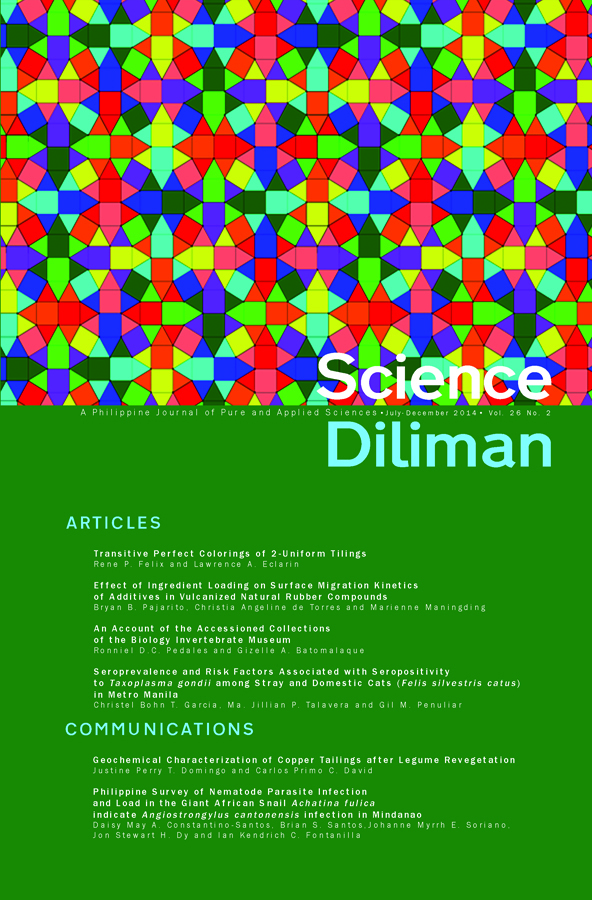Seroprevalence and Risk Factors Associated with Seropositivity to <em>Toxoplasma gondii</em> among Stray and Domestic Cats <em>(Felis silvestris catus)</em? in Metro Manila
Abstract
Toxoplasma gondii is a protozoan parasite that causes toxoplasmosis. It is widespread in the environment and infects a variety of warm-blooded animals, causing miscarriages and birth problems. Previous studies in the Philippines have determined the seropositivity of T. gondii in humans. However, the seroprevalence of the parasite among household pets, par ticularly its feline def initive host, remains insufficient . This study aimed to: (1) determine the seroprevalence of T. gondii antibodies among domestic and stray cats in the Philippines; and, (2) to analyze the risk factors associated with seropositivity. Blood samples from 59 domestic and stray cats were collected and tested for T. gondii seropositivity using a commercially available indirect ELISA kit, while pet owners and handlers were given questionnaires about their cats. Thirteen or 22.03% of the cats were seropositive to T. gondii, and risk factor analysis revealed a significant difference between domestic and stray cats with regard to diet (p = 0.026, OR = 8.333, c = 0.299) and domestication (p = 0.039, OR = 5.000, c = 0.276). Cats fed with table food tested 31.43% seropositive compared to the 4.35% of those fed with cat food, whereas 33.33% of the stray cats were seropositive compared to 7.69% for domestic cats. Odds ratio test showed that the risk factors studied were associated with higher likelihood of T. gondii seropositivity. These results implicate diet and environment in the transmission dynamics of T. gondii among cats.
Keywords: Toxoplasma gondii, seroprevalence, risk factor analysis, indirect ELISA



